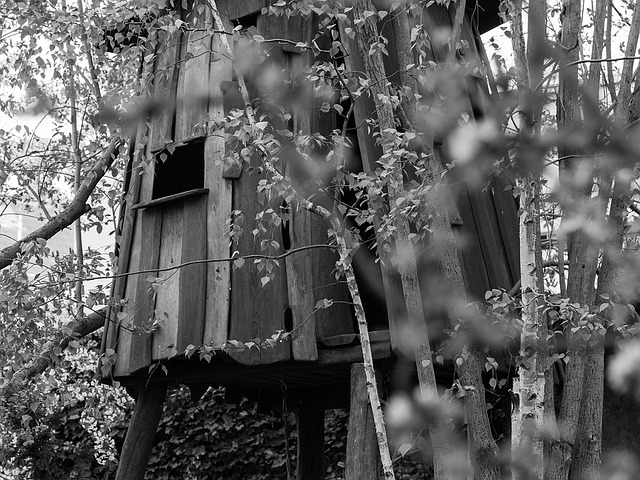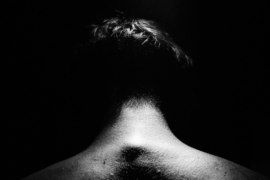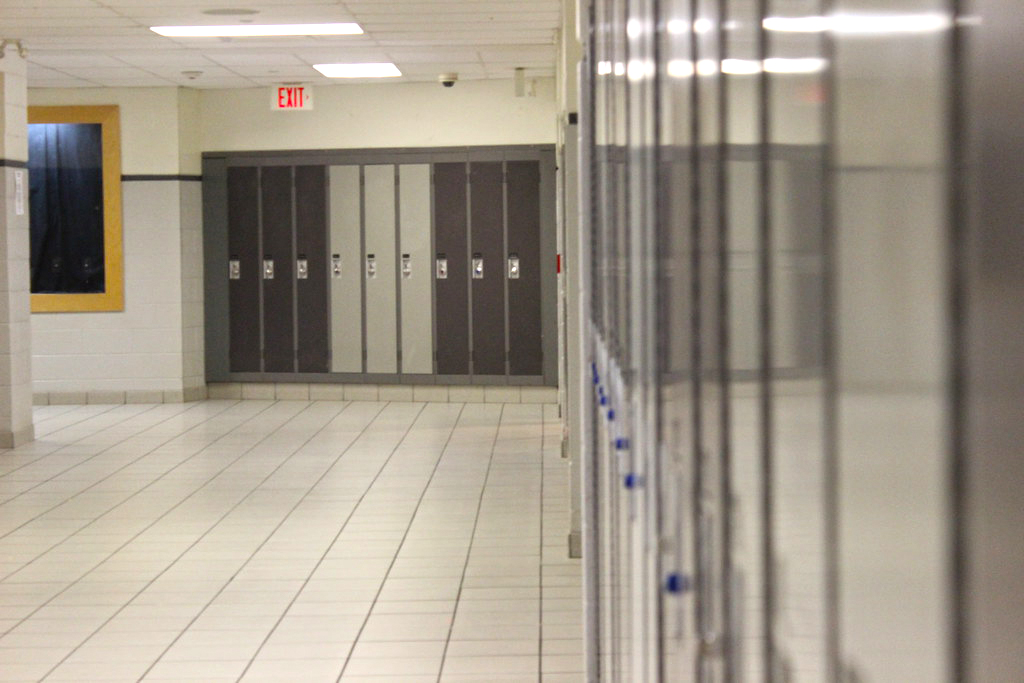Robert Kaye
Momma took up residence in the fridge on a hot fall day, the air inside the house rendered to semi-liquid, even with fans full speed and windows wide.
As Runt of the Litter—reader of books, disdainer of roughhousing, member of no team and last in the chain of hand-me-down abuse—it fell to me to help out in the kitchen after school. That afternoon, I expected to match wits with macaroni, cheese, pork chops and peas (the only green vegetable tolerated by The Horde). The asthmatic vibrato of the fridge echoed in the front hallway, the house otherwise still with my brothers at football practice and father at work.
A slab-sized package of chops sagged on the counter, plastic wrap blistered with pink liquid. Mayonnaise, eggs and cheese reposed in the open dishwasher and I wondered if I’d interrupted a robbery in progress, but shrugged it off as another of Momma’s ambitious cleaning projects. I proceeded to wash and season the chops.
I discovered her when I went to put the milk away.
“Rust, honey—hello,” she said. She must have made her move in the brief respite between morning chores and the dinner siege. The fridge once qualified as state of the art, with a spacious interior, temperature and humidity controls and adjustable shelves, but Momma appeared uncomfortable.
The year before, she’d moved into the basement seeking sanctuary from the snoring which shook the house like an infestation of continuous-loop roller coasters. She slept on the work bench among bikes, fishing tackle, mud-encrusted sports gear and oxidizing tools until my father decided to fabricate a kayak, calculating correctly that the resin fumes would drive her out. It almost asphyxiated us all.
“Whatcha up to, Momma?” I aimed for a casual tone.
“Hiding. But you knew that. Would you mind cooking dinner?”
Domestic skills remained alien to the four male family members granted divine right to create mess and destruction—shopping, cooking, cleaning, laundry, straightening up, repairing and enabling occupied Momma beyond triple overtime. I had no desire to inherit her apron, but there seemed little choice. “Sure,” I said.
“Thank you my darling boy. I don’t know where I’d be without you.”
“Someplace worse than the refrigerator?” I ventured.
“I hate to be a bother,” she said. “But can you please bring me my gray sweater?”
“How long’s she planning to stay in there?” Dad asked at dinner, surprise not part of his repertoire.
“Why don’t you ask her yourself?” I said. Preparing a meal fit for ten normal sized people had taken its toll on my patience. My insolence pricked up the ears of my predatory siblings.
“Why didn’tja fix dinner rolls, numbnuts?” Said Tanner, my eldest and largest brother. “Momma always fixes rolls.”
I’d considered rolls, but there was no room in the schedule. Dinner hit the table at 6:00 PM, regardless of menu or extenuating circumstances.
“What’s with the freaking peas again?” said Axle, brother number two. “I hate freaking peas.” “Freaking” in deference to our father’s prohibition against profanity—outside his earshot, it was fuck this and fuck that.
“What’s your hurry, squirt?” said Dom, deftly tripping me as I rushed past. The Bully’s Code designated Dom as the instrument of direct physical action against the smallest and weakest. Lined up by age, we formed a bar graph of my mother’s reproductive exhaustion.
“That’s it,” I said, face down on the shag. “From now on, you can feed your own god damned cretin selves.”
“Hey there, MISTER,” said my father. “That vocabulary will not be TOLERATED in this household.”
Dom snickered. Tanner ceased gnawing the bone of his fourth or fifth chop. Axle put his mastication of peas on pause to savor my impending punishment.
I sat up, gaze locked onto my father’s, my warrior’s heart awakened, as he’d often wished. Without a word, I backed toward the oven, within sight of the table in our open floor plan. The skin of my bare fingers sizzled as I removed the racks, still hot from the pork chops, the pain compartmentalized by will. I positioned one foot in the oven, my tennis shoe generating a surprising amount of noxious smoke, and began to fold myself inside.
“Wait,” my father said. “You WOULDN’T—?”
Encouraged by the suggestion of a quaver, I froze in mid-crouch, wondering how many seconds of insulation my jeans might provide. The blisters on my hands began to hurt like hell, but there was no room to back down.
“What the HELL is going on out there?” came a muffled voice from the fridge.
In that moment, I believe my father grasped the futility of tyranny where kayak fumes only matter to those who care about breathing. “Rust,” he said. “I want to thank you for a DAMN fine meal. Your brothers will clean up. DOMINIC will prepare breakfast. Now let’s see about those hands.”
Momma slept in her own bed that night under a small mountain of blankets, though she remained blue for about a week. I did not cook again for some weeks while my hands healed. It remains to be seen whether anyone in our family will need to move into an appliance ever again.
Robert Kaye stories have appeared in over twenty publications. A smattering of these stories has been nominated for Pushcart, Best of the Web and storySouth Million Writers prizes. He writes, works and juggles in Seattle, Washington.



